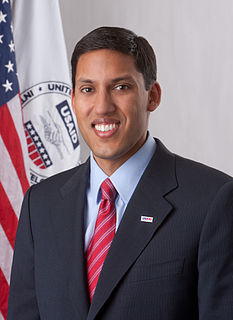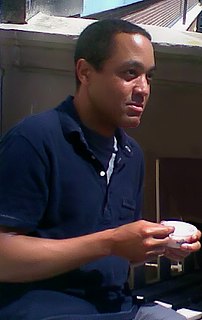A Quote by Leila Janah
Most of us working on poverty alleviation simply want to know, 'How much poverty can I reduce for every dollar I donate?'
Related Quotes
If farmers become weak the country loses self-reliance but if they are strong, freedom also becomes strong. If we do not maintain our progress in agriculture, poverty cannot be eliminated from India.But our biggest poverty alleviation programme is to improve the living standard of our farmers. The thrust of our poverty alleviation programmes is on the uplift of the farmers.
If we continue on the trend we’re on, we can reduce extreme poverty by more than 60 percent-lifting more than 700 million people out of dollar-and-a-quarter a day poverty and back from the brink of hunger and malnutrition. But if we accelerate our progress from 3 percent annual reduction to over 6 percent and focus on key turnarounds in some difficult countries, we could get a 90 percent reduction. We could essentially eliminate dollar-and-a-quarter head count poverty.
Poverty is a strange and elusive thing. ... I condemn poverty and I advocate it; poverty is simple and complex at once; it is a social phenomenon and a personal matter. Poverty is an elusive thing, and a paradoxical one. We need always to be thinking and writing about it, for if we are not among its victims its reality fades from us. We must talk about poverty because people insulated by their own comfort lose sight of it.
One of the most durable successes of the war on poverty was to dramatically reduce the number of elderly poor in America. That's still true today. But, by contrast, child poverty has shot up over the last few years: A decade ago, about 16 percent of children in America were poor - which is a shockingly high percentage. But it's not as shocking as today, when we see that 22 percent of kids live in poverty.
The times talk to us of so much poverty in the world and this is a scandal. Poverty in the world is a scandal. In a world where there is so much wealth, so many resources to feed everyone, it is unfathomable that there are so many hungry children, that there are so many children without an education, so many poor persons. Poverty today is a cry.
And every historic effort to forge a democratic project has been undermined by two fundamental realities: poverty and paranoia. The persistence of poverty generates levels of despair that deepen social conflict the escalation of paranoia produces levels of distrust that reinforce cultural division. Rae is the most explosive issue in American life precisely because it forces us to confront the tragic facts of poverty and paranoia despair, and distrust. In short, a candid examination of race matters takes us to the core of the crisis of American democracy (p. 107).


































